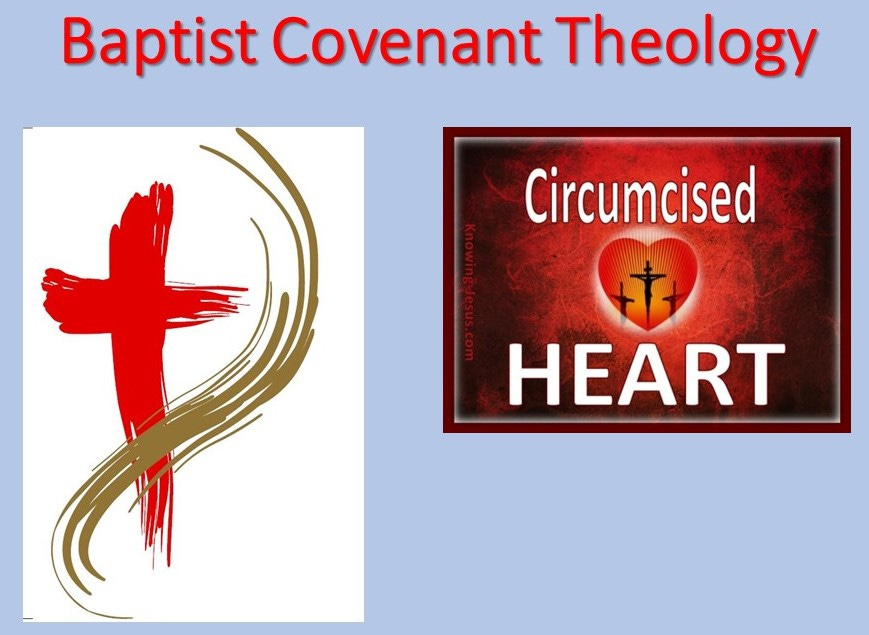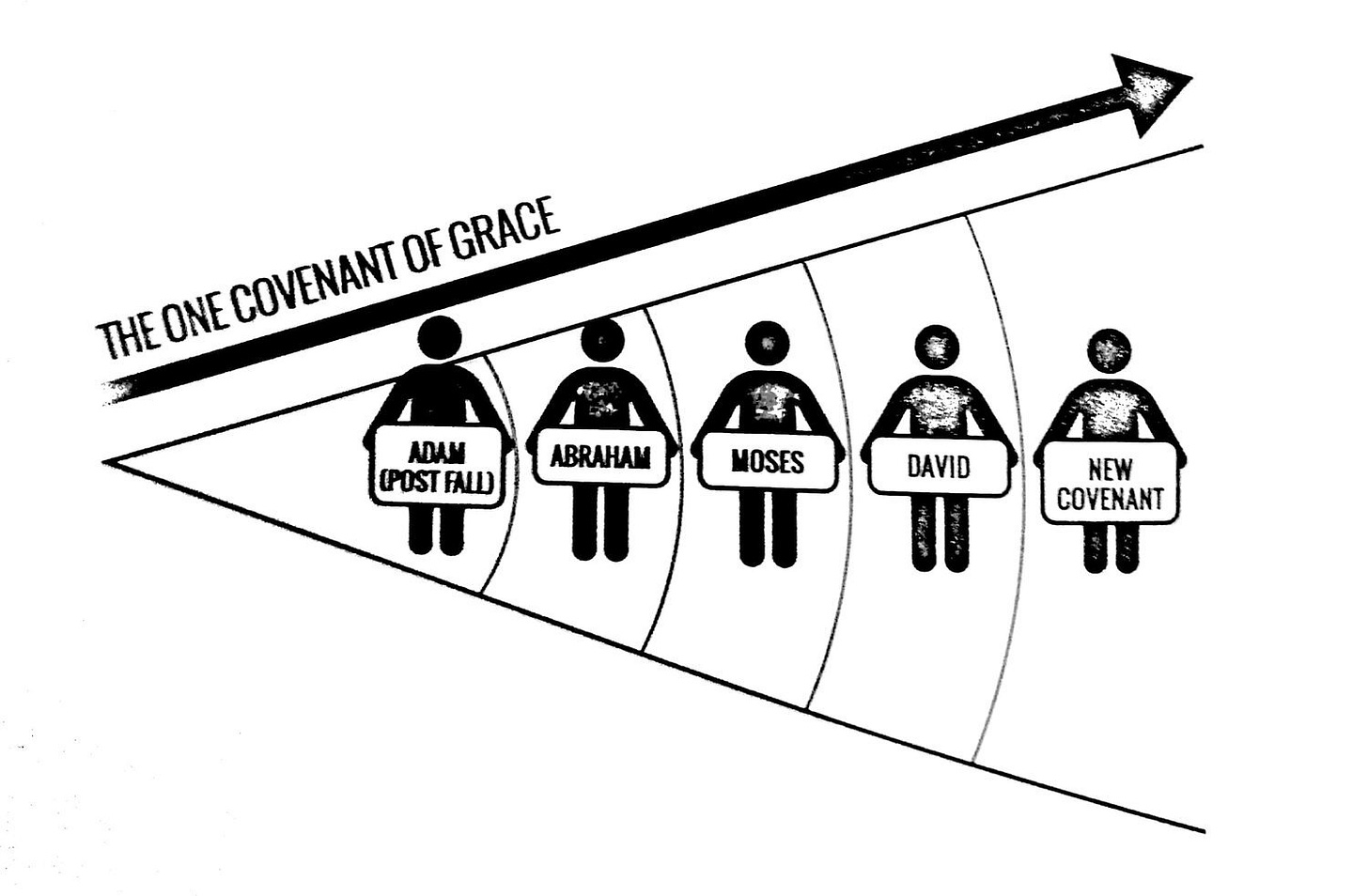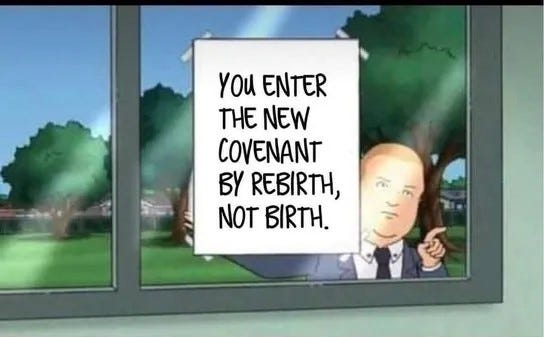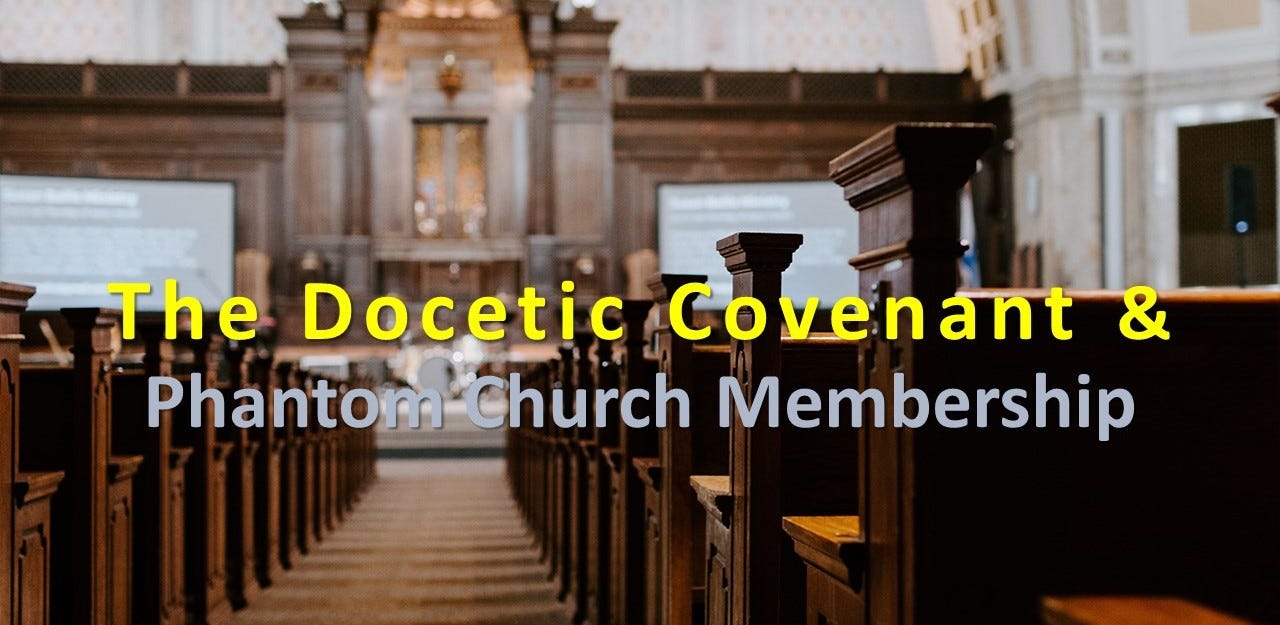Covenant theology teaches that God has one, successful plan for saving His people. A “covenant” simply means a commitment. God committed before the world was created to save His people — the theological covenant called the “covenant of redemption — and He has worked through a series of historical covenants in the Bible to accomplish it.
That is, God makes commitments, perhaps with Himself, as the Triune God, or with His creatures. For example, Psalm 121:7-8, speaking to His people, God promises to save them.
"The LORD shall preserve you from all evil. He shall preserve your soul. The LORD shall preserve your going out and your coming in from this time forth and even for evermore"
So, from the beginning, God committed Himself to save His people. “He chose us in Him before the foundation of the world” (Ephesians 1:4.) That is a theological covenant: the “covenant of redemption.” He made a commitment to Himself and us. That commitment — covenant — was to redeem particular people before He created the universe. He did not merely try to make salvation available to sinners who want it, like the way a store makes milk available to any who want it, nor did He first — as His primary goal — to bless one particular nation — ethnic Israel — and then made the gospel available for Gentiles until He can return to blessing that nation. Rather, He had a single plan of salvation for His “company of nations” (Genesis 28:3, 35:11, 48:4) which is the church. He committed to save them and is now doing that very thing. Thus there is a unity of the Bible and all of scripture is always relevant for God’s people.
Historical & Theological Covenants
To achieve that, He instituted a series of historical covenants, like His covenant of works with Adam, the covenant with Noah to spare humanity from worldwide floods, the covenant with Abraham in which He narrows His work in history to one family, the covenant with David in which He reveals from which family He’ll re-establish His Kingdom, and the new covenant revealed by the Lord Jesus that fulfills all the others.
Ligon Duncan, explains it another way,
Covenant theology explains the relationship between God and humanity in terms of divinely initiated covenants that also structure the history of redemption revealed in Scripture because divine covenants in the Bible provide an exegetical, thematic, and theological framework for seeing the overarching unity as well as progress in God’s plan of salvation. Hence, drawing upon and deploying the Bible’s teaching about, and use of, the covenants, Covenant theology seeks to give an account of the unity and continuity, as well as the discontinuity and progress, in the promise and fulfillment of the unfolding history of redemption. (“Covenant Theology,” TGC.)
Thus covenant theology sees the Bible’s story as a unified story of God’s plan of salvation. Although there are some temporary features — such as the dietary laws created at the Sinai covenant, reversing God’s earlier allowance that “Every moving thing that lives shall be food for you” (Genesis 9:3), rescinded by the Lord Jesus when He “declared all foods clean” (Mk 7:19 — there is a continuity of the covenants. The covenants were not different administrations, cancelled by each other. They were the unfolding of one, successful plan of salvation.
Some things, like ethnic Israel’s right to the land, are debatable. You can believe that ethnic Israel still has a right to the land. But these passages state the promise to ethnic Israel to have the land promised in Genesis was fulfilled: Josh 21:43–45; 23:14–15; 1 Kgs 4:21; 8:56; 2 Chron 9:26; Jer 11:4–5; and Neh 9:8. Still, one could, perhaps, hold that ethnic Israel still has some earthly covenant with the Lord. But Covenant theology sees that the Israel that is the overwhelming concern of Scripture is the one assembled from all kinds of ethnicities, through the Covenant of Grace. He sought to save that “Israel of God” (Gal. 6:16) from before the foundation of the earth and is succeeding.
The Sign of the Covenant
Covenants come with signs. Noah’s covenant has the rainbow, Abraham’s circumcision, David’s throne, the New the Lord’s Supper. But the true sign of our covenant is in our hearts, where God has given us love for Him; it’s not “by the letter,” by a ritual (Romans 2:29). Some people who baptize babies say baptism is the sign of the covenant. So, they baptize babies just like Abraham was told to circumcise them. They say baptism has replaced circumcision as the sign of the covenant. But the Bible never says that. It says our sign of the covenant is in the heart, giving us love for God (Deuteronomy 30:6). Circumcision was a type of regeneration — getting a new heart. Thus, those God commits to save — thus He is in a covenant with them — He gives a new heart. That new heart is the sign of the covenant in the New Covenant.
God makes a commitment — a covenant — and the sign of that commitment is giving His people a new heart. Then they love God and are disciples. They obey His commands, like to be baptized.
Baptism is not a sign of the covenant. It doesn’t replace circumcision, or put babies in a covenant with God, and the New Testament never talks about “covenant children.”
There is a continuity of covenants. But the sign of the covenant is explicitly changed. After all, if the Lord had intended a complete continuity with the old covenant, then why not simply continue circumcision? If there is no change, why did the sign of the covenant change? Why not require Christians to be circumcised, as some were proposing in the early church? But Paul says that believers, of all ethnicities, are now “children of Abraham” by faith (Galatians 3:7). The sign of being one of God’s people now is a new heart that shows in faith in Christ.
On Covenant theology and infant baptism, see:
Those who baptism replaces circumcision, don’t do it on the 8th day, like required in Genesis 17:12 and Leviticus 12:3. If they’re really doing it as a replacement for circumcision, they should do it on the 8th day, and only for boys. But they don’t. The fact is that using Covenant Theology to cover for infant baptism is an abuse of Covenant Theology. God’s covenant is with the elect, the true Church, made up of believers from all nations. You can’t be born into it. You must be born again into it.
Baptism Is the Sign of The Circumcision of The Heart
The New Testament never talks about “covenant children,” or shows us anyone being baptized on the basis of someone else’s faith, of small children being baptized because their parents were believers. The Lord Jesus command to baptize is for the church to baptize disciples (Matthew 28:19). How can we know if a baby is a disciple? Baptism is a sign for disciples to point to their commitment to the Lord.
Since baptism is the sign of the circumcision of the heart, we should reserve it for people who show that sign.
For more about how Biblical covenant theology does not support infant baptism, click on the YouTube video above.
Church Covenants
Since God is a covenant-making and covenant-keeping God, we should be too. Originally, Baptists understood this. When new members joined a Baptist church, they subscribed to its covenant. Church covenants were constitutive for Baptist churches. In other words, they formed the church. When a body of believers covenanted to “walk together in Christian love,” that gave them the authority to set up a church, administer the sacraments, use the “keys of the kingdom,” practice church discipline, etc. Originally Baptists saw their church covenant, along with believer’s baptism and church discipline, as the main ways to protect the identity of their church as consisting of regenerate church members.
“They are to voluntarily to give up themselves to the Lord and one another, . . . to walk together in all the ordinances of Christ, . . . in a mutual consent, covenant, or agreement” — William Bartlet
Modern Christians have breathed in the spirit of covenantlessness, ties that don’t bind, like with cohabitation in the wider culture. So, church covenants have declined. Many new churches don’t have them. Many older churches don’t feel bound by theirs. In the twentieth-century, the church member’s relationship to the church became increasingly like the culture’s marriages: the appearance of a covenant but lacking the power to bind us together. Now the feeling is ‘Scary is the Tie that Binds.’
To read the article at Theopolis click: The Docetic Covenant and Phantom Church Membership (<click to go to the whole article)
John B. Carpenter, Ph.D., is pastor of Covenant Reformed Baptist Church, in Danville, VA. and the author of Seven Pillars of a Biblical Church (Wipf and Stock, 2022).










